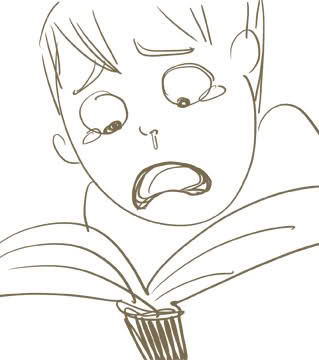What do you think?
Rate this book


503 pages, Paperback
First published January 1, 1966
“Don’t build up another false image. I may be the picturesque sufferer now, but when I have the whip-hold, I shall behave quite as crudely, or worse. I have no pretty faults. Only, sometimes, a purpose.”
“Dear me,’ said Lymond mildly. ‘I am being taken to an unfortified island, where half the defenders and most of the defence fleet are missing, to lay down my life in defence of an Order incompetently if not culpably led, wholly divided among itself, given over to fighting for secular princes and entirely denuded of money with which to pay me for my services.”
“A great Church and a race of defenders had come to bless the peasants and noblemen of Malta, who possessed a rock and the language Christ spoke. Bitterly silent both about the privileges they had lost and the laws they were now to fulfil, the Maltese were apt to recall that the Church was already theirs long before the knights came; and that before the knights came, they had no need of defenders.”
“Oh Christ, Jerott, you’ve got one hero too many already. Stand on your own feet, Brother. It’s good for the soul.”
Don’t build up another false image. I may be the picturesque sufferer now, but when I have the whip-hold, I shall behave quite as crudely, or worse. I have no pretty faults. Only, sometimes, a purpose.
Centuries ago, appealing for a new Crusade, the cry had been “Dieu le veut!”—God desires it. But which God? Francis Crawford inquired pensively of each silent street of closed doors. For if your Moslem is also devout and self-denying, loyal and fervent, courageous and tolerant, and believes that to dispatch a Christian in battle will send him straight to the Red Apple of Paradise, then in the forthcoming attack, with no professional, no ideological flaw on both sides, sheer weight of numbers must tell.
“Zest and power and exhilaration may spring from so much that is far from divine. Faith in one’s cause, one’s leader, one’s love would equally do.”
A common danger might do such a thing, except that the nation was too weak to resist one. A great leader might achieve unity—but he must be followed by his equal or fail. A corporate religion might do it, but where did one exist which some foreign power had not seized and championed already?
But we are still infants, where emotion finds outlet in force and force is met by emotion, and people cannot conceive of themselves even yet as nations instead of as families…and certainly not as a brotherhood of nations, when even sister religions bring their armies against one another….
"Between the palaces of the knights and those that served them; the convents, the elegant homes belonging to officers of the Church and the town; between the bakehouse and the shops of the craftsmen, the arsenals and magazines, the warehouses, the homes of merchants and courtesans, Italian, Spanish, Greek; past the painted shrines and courtyards scraped from pockets of earth with their bright waxy green carob trees, a fig, a finger of vine, a blue and orange pot of dry, dying flowers and a tethered goat bleating in a swept yard, padded the heirs of this rock, this precious knot in the trade of the world. Umber-skinned, grey-eyed, barefoot and robed as Arabs with the soft, slurring dialect that Dido and Hannibal spoke, they slipped past the painted facades to their Birgu of fishermen’s huts and blank, Arab-walled houses or to sleep, curled in the shade, with the curs in a porch."
"They ask more than anyone can give,” said Lymond, his manner suddenly altered, and got up. “Is this true? You see beyond Gabriel’s shadow to the ideal of the Order? And beyond mine to ... what I mean to do, rather than what I do?" He smiled, though not with his eyes, and coming forward, stood with Jerott in the doorway. "You will find your place, Jerott. Good luck. And God speed you to France."
He did not touch the departing man, nor did his eyes have in them any of Gabriel’s lucent candour; but Lymond’s voice was as Jerott had rarely heard it, pared of all mockery, and a little of the warmth he was suppressing, despite his effort, showed through.
And for some reason, this brought Jerott’s whole mechanism for speech, emotion and deed to a shuddering halt. He stood, his stomach turning within him, and heard Lymond add, his voice cool once more, "How unimpeachably shifty it sounds. What a fate for the tongues of the world, that after Gabriel all that is true and simple and scrupulous should sound like primaeval ooze."
It was then that Jerott took heed at last of the knot in his belly and the ache in his throat, and announced, regardless of every plan he had made, "I should like to stay. May I?"
"Oh, God, Jerott," said Francis Crawford, and the blood rose, revealingly, in his colourless face. "Yes ... but ... oh, Christ I’m glad; but if you touch my back once again you’ll have to see the whole bloody thing through yourself."

“A Scott, having got his bride pregnant, was apt to file her as completed business for eight months at a time.”
“What does anyone want out of life? What kind of freak do you suppose I am? I miss books and good verse and decent talk. I miss women, to speak to, not to rape; and children, and men creating things instead of destroying them. And from the time I wake until the time I find I can’t go to sleep there is the void—the bloody void where there was no music today and none yesterday and no prospect of any tomorrow, or tomorrow, or next God-damned year.”
“You had good reason to hate me. I always understood that. I don’t know why you should think differently now, but take care. Don’t build up another false image. I may be the picturesque sufferer now, but when I have the whip-hold, I shall behave quite as crudely, or worse. I have no pretty faults. Only, sometimes, a purpose.”
"He’s a tongue, Mr Crawford has, hasn’t he?” said Chester Herald in a pleased voice. “We found that out in France. A proper lad. And what he got up to!”
“You should see what he gets up to here,” said Jerott, bored.
When, late at night, the shadow darkened the starlight behind her silent shrouds, and the door, whispering, admitted a deeper shadow, soft-footed and deft, it found her already perfect as a flower brought to its full-breathing height.
A hunter went killing sparrows one cold day, and his eyes gave forth tears as he went. Said one bird to another, “Behold, this man weeps.” Said the other, “Turn thine eyes from his tears. Watch his hands”--Dragut Rais--